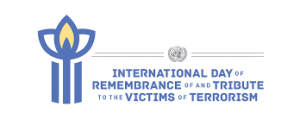World Pregnancy & Infant Loss Remembrance Day is a global healthcare event celebrated on the 15th of October every year to raise awareness regarding Pregnancy loss, Sudden Infant Death Syndrome (SIDS) and infant death, which include miscarriage, stillbirth and newborn mortality.
Women have varying levels of access to healthcare services; hospitals and clinics worldwide in many countries are frequently under-resourced and understaffed. As diverse as the experience of losing a baby may be, stigma and guilt emerge as similar themes worldwide. As these first-person tales demonstrate, mothers who lose their kids are made to remain silent about their loss, either because miscarriage and stillbirth are still so common or because they are thought to be unavoidable, so World Pregnancy & Infant Loss Remembrance Day is established to create public awareness of pregnancy loss, and the importance of acknowledging their lives and the impact it has on greater families.
On this day, in honour of Pregnancy and Infant Loss Remembrance Day, around the world people light a candle at 7 p.m. in their own time zones to create a wave of light in memory of babies lost to pregnancy and infant loss.
History of World Pregnancy & Infant Loss Remembrance Day
In 2002, Robyn Bear, Lisa Brown, and Tammy Novak have started the movement by petitioning the federal government to recognize the World Pregnancy & Infant Loss Remembrance Day on October 15. In 2006, on September 28th, the House of Representatives finally approved National Pregnancy and Infant Loss Remembrance Day.

 Acts of terrorism propagating a wide-range of hateful ideologies continue to injure, harm and kill thousands of innocent people each year.
Acts of terrorism propagating a wide-range of hateful ideologies continue to injure, harm and kill thousands of innocent people each year. The night of 22 to 23 August 1791, in Santo Domingo (today Haiti and the Dominican Republic) saw the beginning of the uprising that would play a crucial role in the abolition of the transatlantic slave trade.
The night of 22 to 23 August 1791, in Santo Domingo (today Haiti and the Dominican Republic) saw the beginning of the uprising that would play a crucial role in the abolition of the transatlantic slave trade.